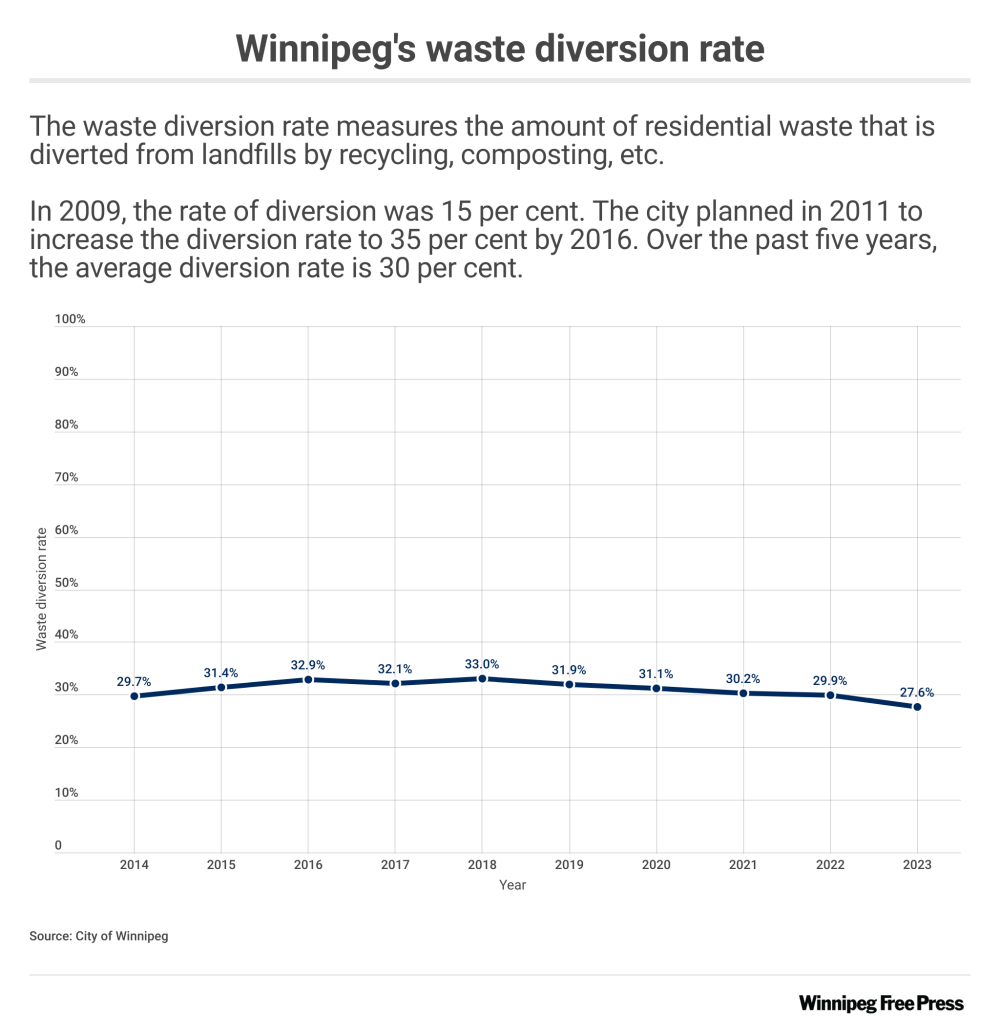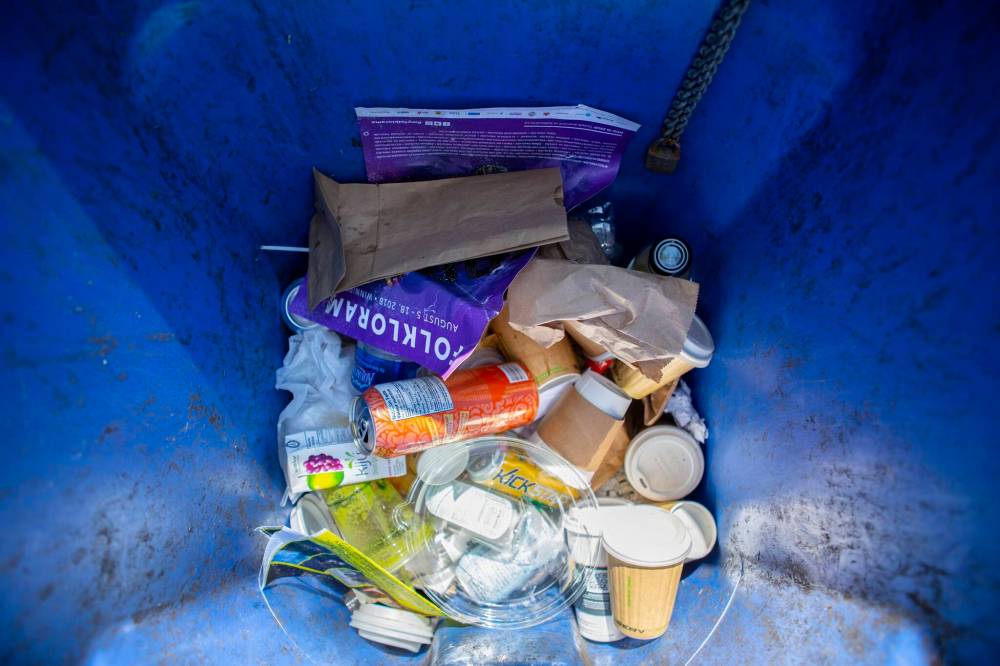The amount of household trash Winnipeggers recycled and composted last year dropped to its lightest load in a decade, falling far short of original targets to divert waste.
Just 27.6 per cent of residential waste was kept out of the landfill in 2023.
While the city notes the total reflects weather conditions and a general weight loss in commonly recycled materials — not just household behaviour — the portion is the lowest recorded since at least 2013 and is down from 29.9 per cent in 2022.

And it falls far shy of a previous 50 per cent waste-diversion target Winnipeg once hoped to reach in 2022, raising concerns among environmental advocates.
“It’s still a sign that we still have a lot of room for improvement,” said Kristen Malec, senior compost and waste reduction program co-ordinator for the Green Action Centre.
Malec noted the city has long acknowledged it won’t meet its 50 per cent diversion target until it adds a long-awaited curbside compost collection program. Winnipeg is currently the last major city in Canada without one.
Six per cent of Manitoba’s greenhouse-gas emissions are from landfills, and about half of the waste in the dumps is compostable and could be diverted, significantly reducing greenhouse-gas emissions, Malec said, adding that organic matter can be used to improve soils.
Winnipeg water and waste spokeswoman Lisa Marquardson said the amount of leaf and yard waste produced each year “heavily influences” the diversion rate, which is measured by weight. Since 2023 was a dry year, there was a 19 per cent drop in the amount of yard waste sent for composting, she said.
Winnipeggers are increasingly recycling a greater volume of less-weighty materials, including a shift away from paper and glass to lighter plastics, reducing the overall weight of recyclables 5.9 per cent from 2022 to 2023, she said.
“The waste diversion rate alone does not accurately reflect diversion program performance Marquardson said, adding both per capita garbage generation rate and per capita waste generation rate decreased from 2022 to 2023 (by 2.9 per cent and 6.5 per cent, respectively.
Efforts to ramp up local recycling and composting rates began around 2010, after residents diverted just 15 per cent of their waste from the landfill the previous year.
In 2011, council approved targets to hike the diversion rate to 35 per cent by 2016 and to “greater than 50 per cent” by 2022.

ANDREW RYAN / FREE PRESS FILES
Six per cent of Manitoba’s greenhouse-gas emissions are from landfills, and about half of the waste in the dumps is compostable and could be diverted, significantly reducing greenhouse-gas emissions.
The city has yet to reach the 35 per cent diversion rate, with an average of 30.1 per cent between 2019 and 2023, and no longer has a target date to divert half of all waste from the landfill.
Coun. Brian Mayes, chairman of the water and waste committee, said the declining waste-diversion rate is a concern, underlining the need to get a composting program started as soon as possible.
“This is why we’ve got to get on with this debate about compost and picking up household food waste…. Let’s not keep dodging, let’s not keep delaying. Let’s just get some answers and get a program going,” said Mayes.
A citywide green bin collection program was originally expected in 2017. Instead, it was delayed multiple times, largely due to debate over how much taxpayers should pay for it. The latest proposal calls for green cart collection to begin in 2030, though council has ordered a report on options to speed the date up to as early as mid-2026. That report is now expected in July.
The Manitoba government declined comment on the matter, citing a media blackout period linked to the upcoming Tuxedo byelection. During that period, provincial laws limit what information the government can advertise or publish.
joyanne.pursaga@freepress.mb.ca
X: @joyanne_pursaga

Joyanne Pursaga
Reporter
Joyanne is city hall reporter for the Winnipeg Free Press. A reporter since 2004, she began covering politics exclusively in 2012, writing on city hall and the Manitoba Legislature for the Winnipeg Sun before joining the Free Press in early 2020. Read more about Joyanne.
Every piece of reporting Joyanne produces is reviewed by an editing team before it is posted online or published in print — part of the Free Press‘s tradition, since 1872, of producing reliable independent journalism. Read more about Free Press’s history and mandate, and learn how our newsroom operates.
Our newsroom depends on a growing audience of readers to power our journalism. If you are not a paid reader, please consider becoming a subscriber.
Our newsroom depends on its audience of readers to power our journalism. Thank you for your support.